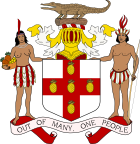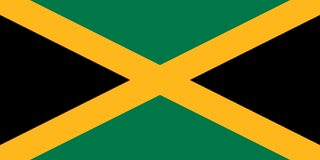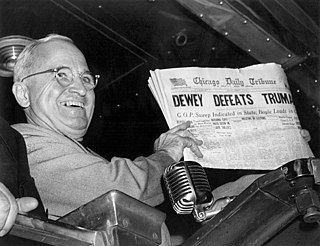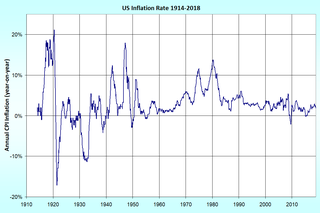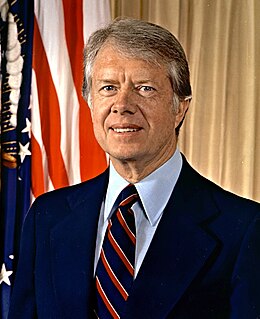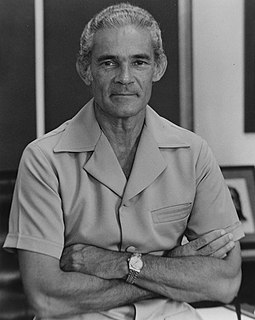
Michael Norman Manley ON OCC was a Jamaican politician who served as the fourth Prime Minister of Jamaica from 1972 to 1980 and from 1989 to 1992. Coming from a prosperous background, Manley was a democratic socialist. According to opinion polls, he remains one of Jamaica's most popular prime ministers.

The 1994 Nepalese legislative election took place in Nepal on 15 November 1994 to elect the Nepal House of Representatives. The election took place after the previous Nepali Congress government collapsed and King Birenda called new elections. The results saw the Communist Party of Nepal win the most seats in the House of Representatives and Man Mohan Adhikari became Prime Minister at the head of a minority government.

The Saint Lucian general election of 2006 took place in Saint Lucia on 11 December 2006. The election was fought between the Saint Lucia Labour Party (SLP) and the United Workers Party (UWP) which between them dominated politics in Saint Lucia. The results saw the governing Saint Lucia Labour Party lose the election to the United Workers Party led by John Compton, which gained eight seats to hold an eleven to six majority.
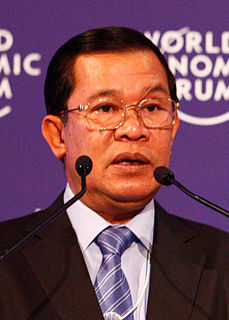
General elections were held in Cambodia on 27 July 2003 to elect members of the National Assembly. The elections were won by the ruling Cambodian People's Party, which won a majority of 73 seats in the 123-seat parliament. However, due to the requirement for a two-thirds majority to elect a Prime Minister, a new government was not formed until July 2004 when a deal was reached with the FUNCINPEC party. Hun Sen was subsequently re-elected the post of Prime Minister.

General elections were held in Dominica on 5 May 2005. The result was a victory for the ruling Dominica Labour Party, which won 12 of the 21 seats in the House of Assembly. The opposition United Workers' Party unsuccessfully made legal challenges to several of the constituency results.

The 2002 Algerian Legislative election was held in Algeria on 30 May 2002 to elect members of the People's National Assembly. The governing National Liberation Front (FLN) won a majority of seats in the election. The election suffered from a low turnout, violence and boycotts by some opposition parties.
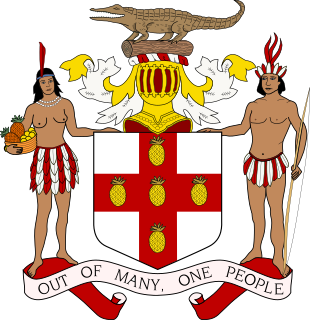
Early general elections were held in Jamaica on 15 December 1983. The election was boycotted by the main opposition party, the People's National Party, in protest at the refusal of the ruling Jamaican Labour Party to update the electoral roll. Whilst several minor parties participated in the election, most seats were unopposed: in the six seats where voting took place, voter turnout was about 55%, so this translated into a nationwide figure of 2.7%. It allowed the Labour Party to win all 60 seats in the House of Representatives, with their leader, Edward Seaga, continuing as Prime Minister.
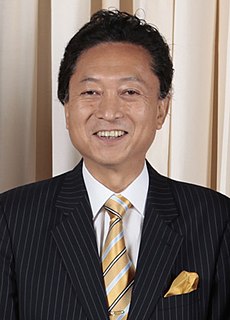
A general election for the Japanese House of Representatives was held on August 30, 2009. The opposition Democratic Party (DPJ) defeated the ruling coalition in a sweeping victory, winning 221 of the 300 electoral districts and receiving 42.4% of the proportional block votes for another 87 seats, a total of 308 seats to only 119 for the LDP.

General elections were held in Jamaica on 9 February 1989. The result was a victory for the People's National Party, which won 45 of the 60 seats. Voter turnout was 78.4%.

Andrew Michael Holness, ON, MP is a Jamaican politician who has been the Prime Minister of Jamaica since 3 March 2016, following the 25 February 2016 general election. Holness previously served as Prime Minister from October 2011 to January 5, 2012. He succeeded Bruce Golding as Prime Minister, and decided to go to the polls in the 29 December 2011 general election in an attempt to get his own mandate from the Jamaican electorate. He failed in that bid, however, losing badly to the People's National Party led by Portia Simpson-Miller, with the PNP gaining 42 seats to the Jamaica Labour Party's 21. Following that defeat, Holness served as Leader of the Opposition from January 2012 to March 2016, when he once again assumed the position of Prime Minister.

The 2003 Djiboutian parliamentary election took place in Djibouti on 10 January 2003 to elect the National Assembly of Djibouti. The ruling coalition of President Ismail Omar Guelleh won all 65 seats in the election defeating an opposition coalition.

The 2010 Sri Lankan parliamentary election was held on April 8 and April 20, 2010, to elect 225 members to Sri Lanka's 14th Parliament. 14,088,500 Sri Lankans were eligible to vote in the election at 11,102 polling stations. It was the first general election held in Sri Lanka following the conclusion of the civil war which lasted 26 years.
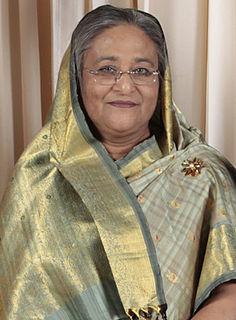
General elections were held in Bangladesh on 5 January 2014, in accordance with the constitutional requirement that the election must take place within the 90-day period before the expiration of the term of the Jatiya Sangshad on 24 January 2014. The elections were controversial, with almost all major opposition parties boycotting and 153 of the total 300 seats being uncontested. Around 21 people were killed on election day.

The 2011 Jamaican general election was held on 29 December 2011 in Jamaica. The election was contested mainly between the nation's two major political parties, the governing Jamaica Labour Party (JLP), led by Andrew Holness, and the Portia Simpson-Miller-led opposition People's National Party (PNP). The result was a landslide victory for the PNP which won 42 of the 63 seats, a two-thirds majority.

General elections were held in Jamaica on 25 February 2016. The elections were largely a contest between the governing People's National Party (PNP) and the opposition Jamaica Labour Party (JLP). The result was a narrow victory for the JLP, which won 32 of the 63 seats. One political commentator described the poll as "the closest election Jamaica has ever had".

General elections were held in Bangladesh on 30 December 2018 to elect members of the Jatiya Sangsad. The result was a landslide victory for the Awami League led by Sheikh Hasina. The elections were marred by violence and claims of vote rigging. Opposition leader Kamal Hossain rejected the results, calling it "farcical" and demanding fresh elections to be held under a neutral government. The Bangladesh Election Commission said it would investigate reported vote-rigging allegations from "across the country." The election saw the use of electronic voting machines for the first time.

Parliamentary elections were held in Georgia on 8 October 2016 to elect the 150 members of Parliament. The ruling Georgian Dream coalition, led by Prime Minister Giorgi Kvirikashvili, sought a second term in office. Opposition parties included the former ruling party and main opposition, the United National Movement (ENM); the Free Democrats, formerly a member of the Georgian Dream coalition and led by Irakli Alasania; and the Alliance of Patriots of Georgia.

Republicanism in Jamaica is a position which advocates that Jamaica's system of government be changed from a constitutional monarchy to a republic. Both major political parties – the Jamaica Labour Party and the People's National Party – subscribe to the position, and the current Prime Minister of Jamaica, Andrew Holness, has announced that transitioning to a republic will be a priority of his government.
